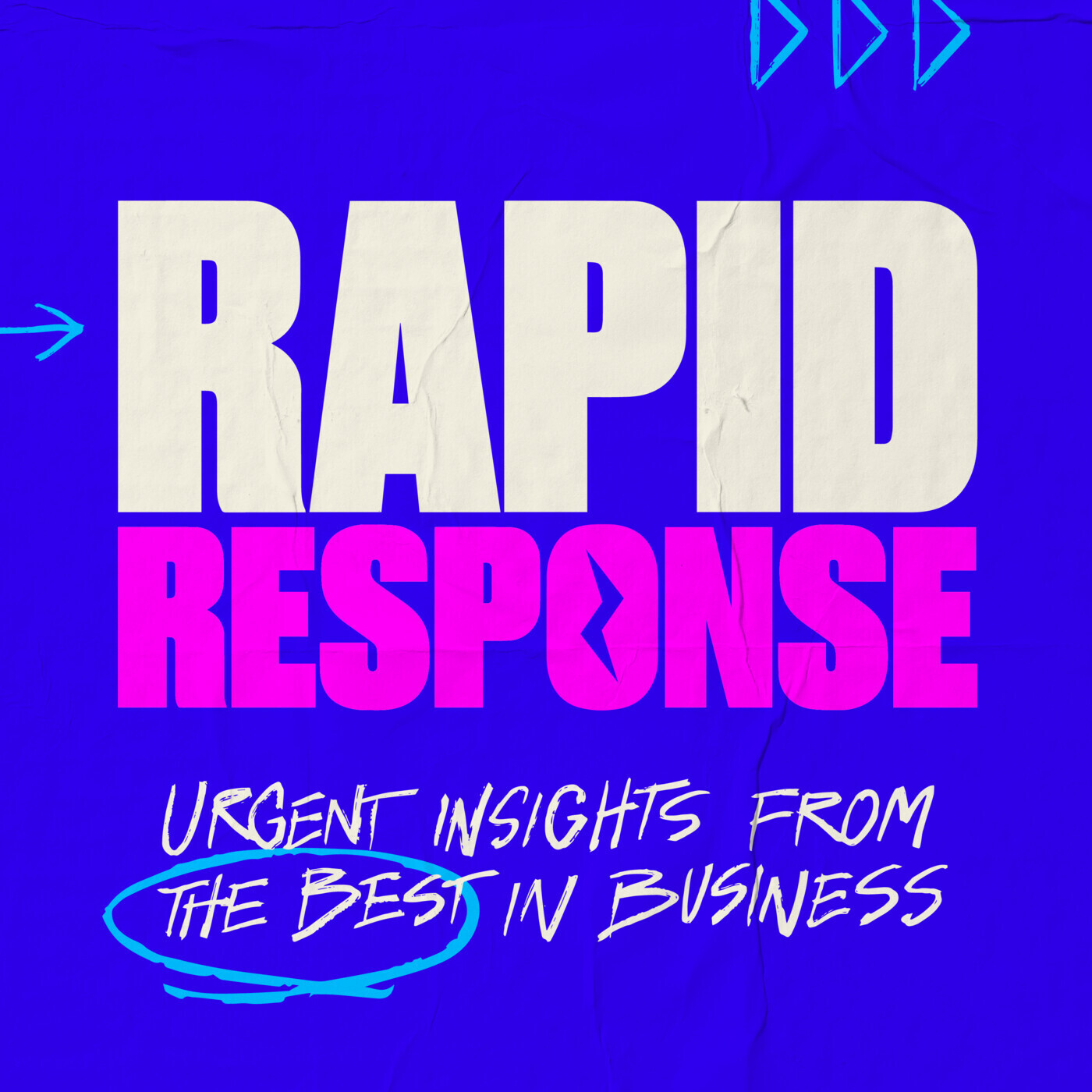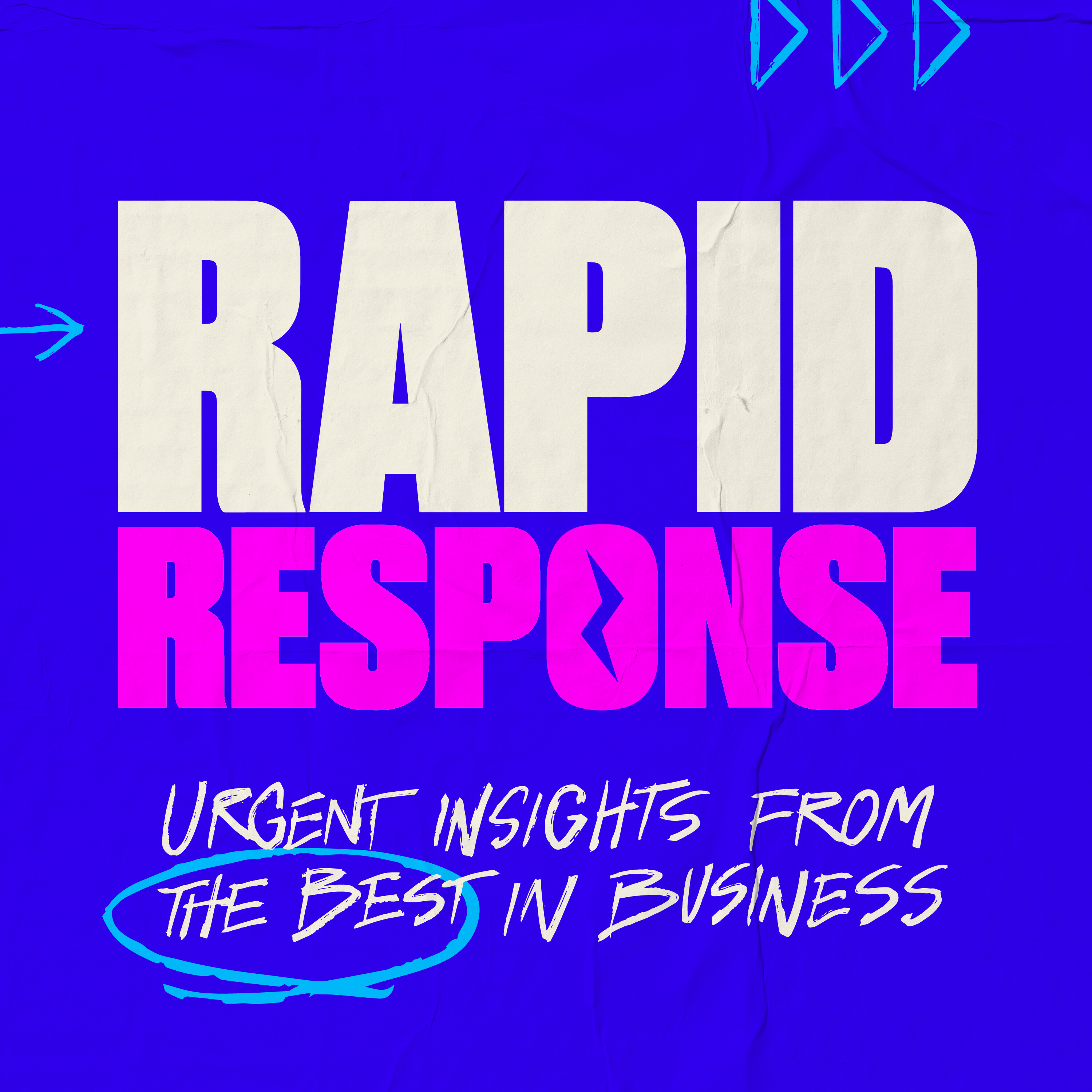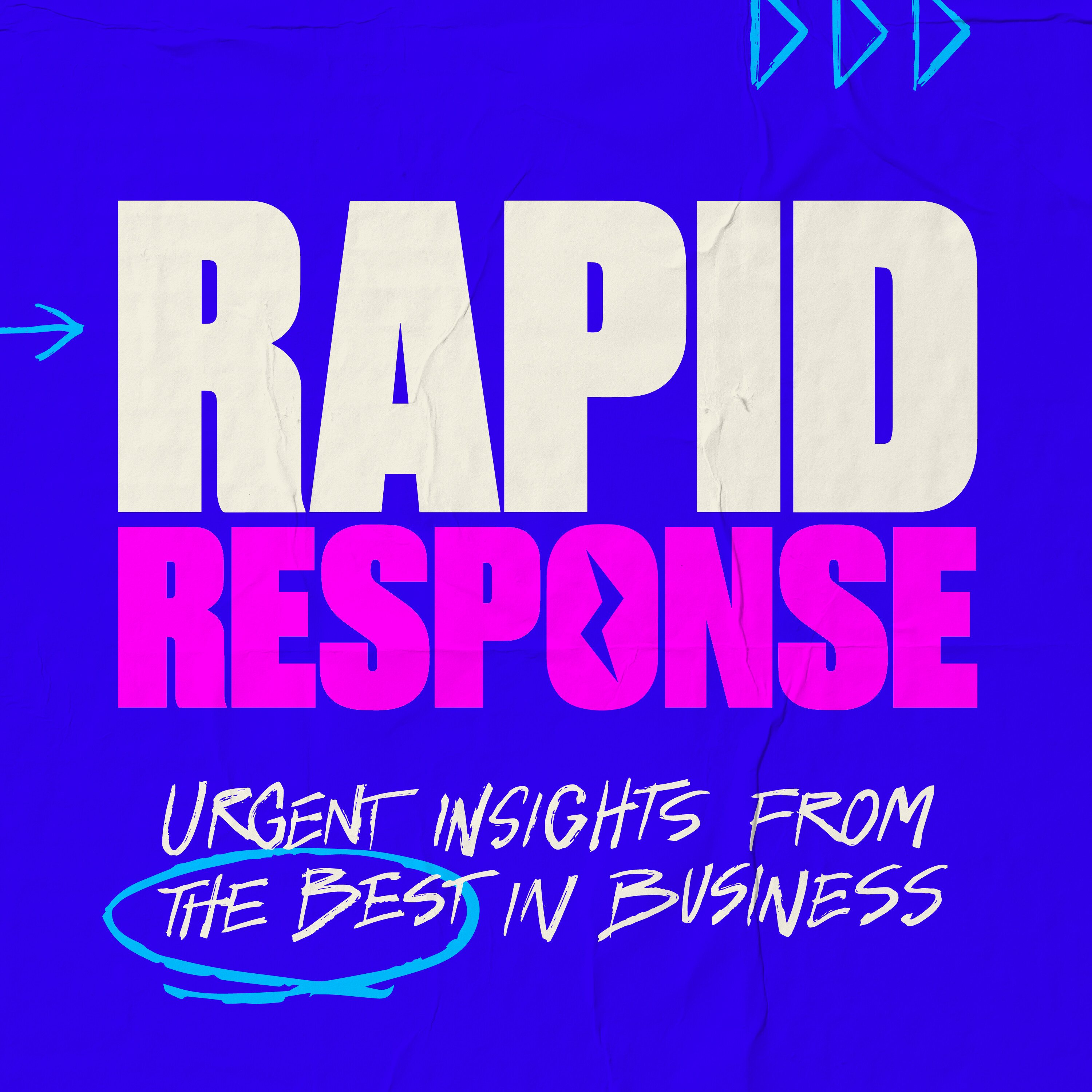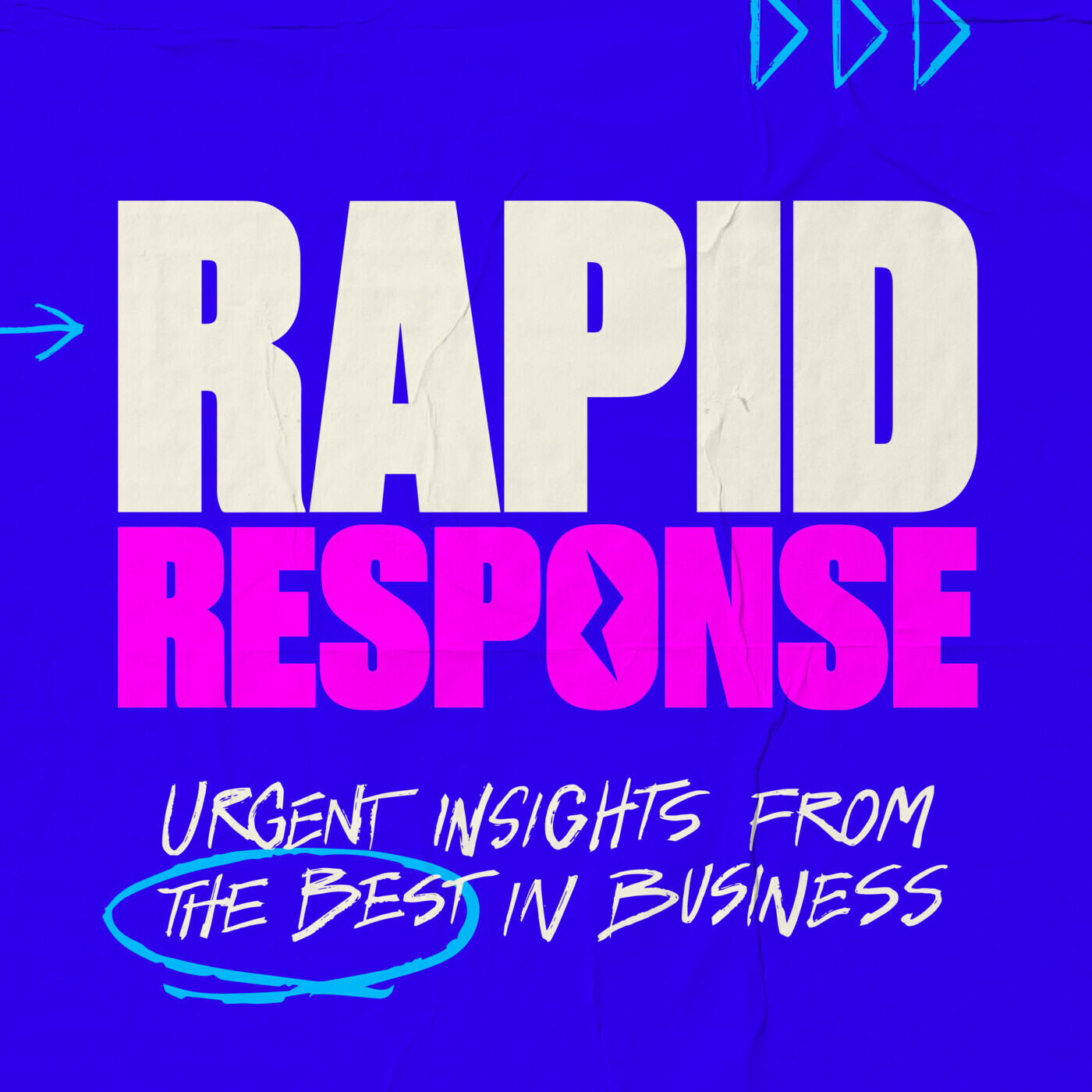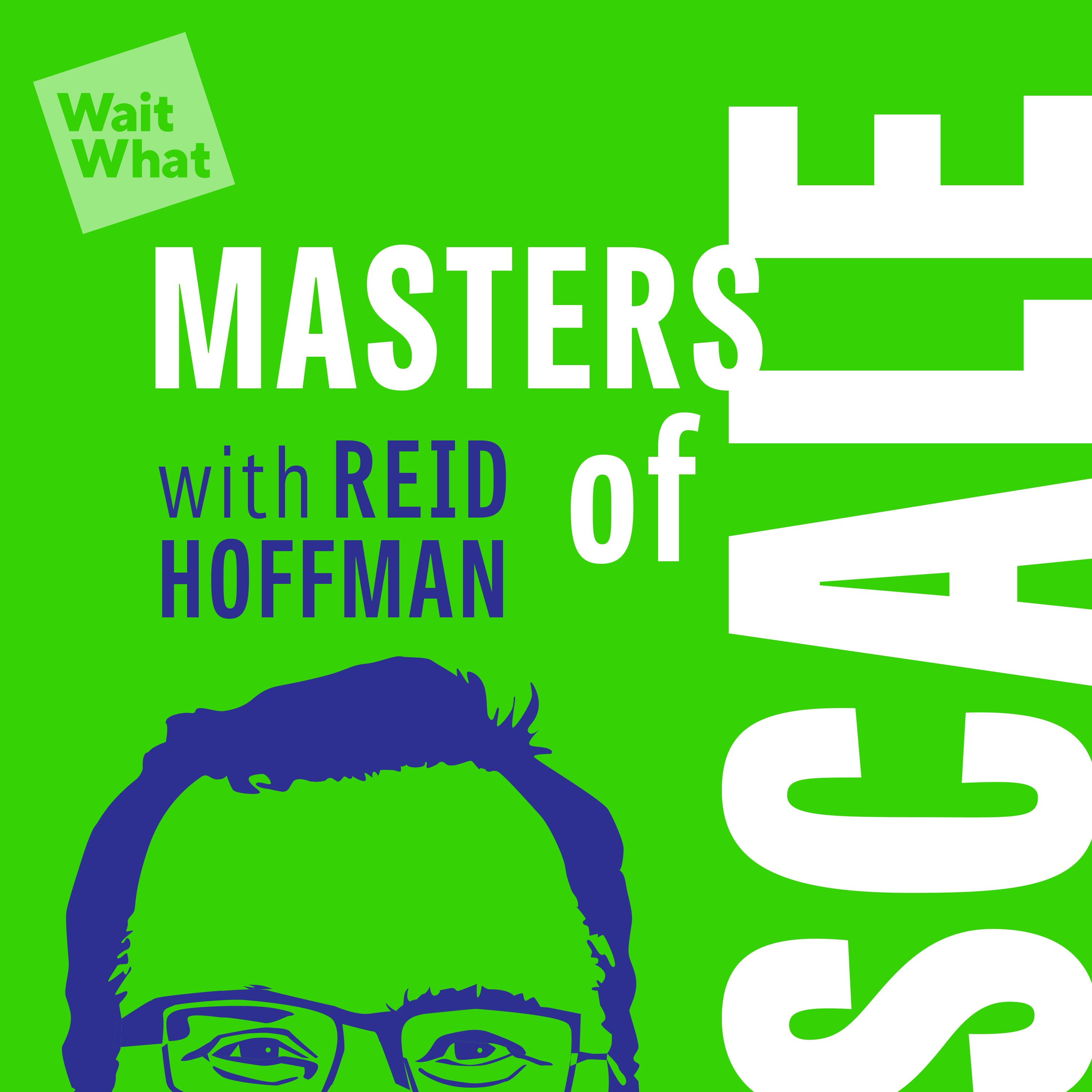
April 4, 2024 • 30min
Rapid Response: 2024 is the most significant time in human history, w/PBS host & futurist Ari Wallach
Masters of Scale

Key Takeaways
- The future is not a fixed destination, but something we actively shape through our decisions and actions - both as individuals and organizations
- Humans are biologically wired for short-term thinking, which helped us survive historically but can be problematic for addressing long-term challenges today
- Business leaders need to reconnect with the moral imperative and long-term impact of their organizations, not just focus on short-term metrics
- Decisions being made now about technology like AI will have profound impacts for centuries to come - we need more public dialogue about the long-term implications
- Practices like writing letters to your future self or considering your "legacy" can help shift perspective to a longer-term view
- The most marginalized stakeholders are future generations who have no voice in current decision-making
- We need more positive visions of the future to work towards, not just dystopian scenarios
Introduction
Ari Wallach is a futurist and host of the new PBS series "A Brief History of the Future." In this episode, he discusses why humans struggle to think long-term, the importance of "futuring" for business and society, and how we can shift our perspective to consider the impacts of our decisions on future generations. Wallach argues that the decisions being made now, particularly around technology and climate change, will shape humanity's trajectory for centuries to come. He advocates for more intentional consideration of long-term impacts in business, policy, and individual decision-making.
Topics Discussed
What is a Futurist? (2:32)
Wallach explains that futurists don't predict the future, but rather:
- Look at major trends and megatrends across areas like climate, science, psychology, and spirituality
- Develop multiple scenarios of what could happen based on these trends
- Help organizations understand what needs to be true for different scenarios to manifest
- Some futurists, like Wallach, focus on which futures we actually want to see become reality
He emphasizes: "The future is not a noun. It's not this thing out there that we're heading towards. The future is very much a verb. It's something that we do consistently and constantly as humans, as parents, as partners, as professionals."
Human Biology and Short-Term Thinking (6:43)
Wallach discusses research showing humans are biologically wired for short-term thinking:
- fMRI studies show people think of their future selves more like strangers than their current selves
- This wiring helped humans survive historically by focusing on immediate threats
- But it can be problematic for addressing long-term challenges like climate change
- Simple interventions like writing letters to your future self can help shift perspective
He notes: "That wiring for survivability is there, and it has helped us to a great point. Now...we have to envision what a thriving, flourishing h**o sapien global planetary civilization looks like in order to get there."
The Need for Positive Future Visions (10:15)
Wallach argues we need more positive visions of the future to work towards:
- Most stories about the future in media are dystopian
- This plays into our negativity bias
- We need to push ourselves to think about what we want, not just what we don't want
- Envisioning positive futures is key for motivating action
Business Leadership and Long-Term Thinking (12:32)
On the challenges of long-term thinking in business:
- Short-term incentives and quarterly earnings pressure work against long-term focus
- The longest-running companies (1000+ years old) operate more like family businesses with long-term perspective
- Younger generations are demanding more long-term responsibility from leaders
- CEOs need to reconnect with the moral imperative and legacy of their organizations
Wallach states: "Unfortunately, the incentives aren't there on an individual level. So we have found when we worked with organizations on how do they think long term? This becomes much more of an ethical and moral challenge and imperative."
Balancing Short-Term and Long-Term Priorities (15:31)
On navigating short-term pressures and long-term responsibility:
- Business, politics, culture are all inextricably linked
- Leaders are struggling with how assertive to be on social issues
- Need to refine the moral imperative of the business beyond just shareholders
- Consider future generations as key stakeholders
Wallach suggests: "What we would ask of CEOs who are trying to figure out how to navigate this moment is to be in that dialogue, to be almost what we call a temporal incursion agent. Right. It's someone who kind of sees the timeline as it is and thinks, where might this go differently?"
The Power of Culture in Shaping the Future (21:20)
Wallach discusses working with celebrities like Drake on his show:
- At concerts, crowds are in sync emotionally and physiologically
- This demonstrates the power of culture to unite people around a vision
- Political arguments are often really about competing visions of the future
- Need more public dialogue about what kind of future we want
Artificial Intelligence and the Future (24:11)
On the potential impacts of AI:
- Current AI development seems focused on near-term business interests of a small group
- We need more public dialogue about long-term implications, similar to nuclear weapons
- Potential for both great benefit and harm to humanity
- Calls for a "Manhattan Project for flourishing futures" focused on using AI to solve global challenges
Wallach argues: "We cover AI...just like horse race politics. We cover it like, well, who's up or down in this election cycle. This election will be about democracy in the future of this country. In many ways, AI should be taken in the same way, in that same, like, wow, we really have to focus."
Practices for Long-Term Thinking (27:09)
Wallach suggests practices to cultivate more "futuring" thinking:
- Ask yourself daily if you'd be proud for your children to model their lives on your actions
- Write letters to your future self
- Confront your own mortality to expand your perspective beyond your lifespan
- Shift from being "death anxious" to "death aware" to think beyond your own life
He explains: "When you're death anxious, you very much focus on the short term...When you're death aware, you open the aperture of the decisions that you make for future generations and you're not as connected to your own biological death because now you see your actions within a much larger framework."
Conclusion
This conversation with futurist Ari Wallach highlights the critical importance of intentional long-term thinking in business, policy, and individual decision-making. While humans are biologically wired for short-term survival, the complex global challenges we face today require us to expand our perspective. Business leaders in particular have an opportunity and responsibility to consider the long-term impacts of their decisions on future generations. By cultivating practices that help us envision positive futures and think beyond our own lifespans, we can make choices that lead to a more flourishing future for humanity. The decisions being made now, particularly around technology like AI, will shape society for centuries to come - we must engage in more public dialogue about the long-term implications and work to create the future we want to see.

